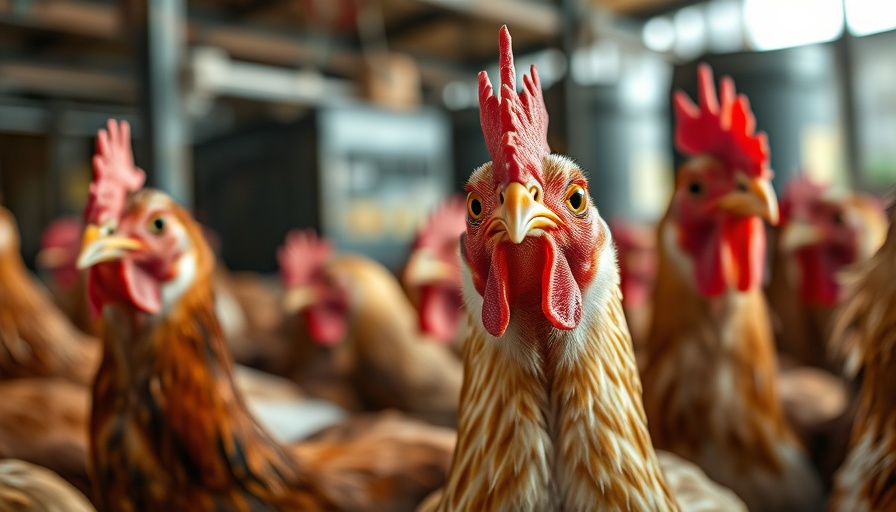
Why Financial Concerns Surround Bird Flu
The recent poll revealing that individuals fear the financial impact of bird flu more than its health implications underscores a growing anxiety. As outbreaks of avian influenza spark heightened awareness, it's interesting to see public perception tilt towards economic consequences. With poultry farming being a significant industry globally, any disruptions can lead to immediate financial fallout for farmers, supply chains, and consumers alike.
Historical Context: Previous Bird Flu Outbreaks
Historically, outbreaks of bird flu have resulted in swift action from governments, often culminating in culling affected birds to control the spread. This past response provides a blueprint for understanding current fears. During the 2014-2015 H5N2 outbreak, the U.S. witnessed substantial economic losses in the poultry sector, leading to heightened consumer prices. This lingering fear of similar economic impacts seems to have shaped public opinion significantly.
Economic Impact of Avian Influenza
The intersection of health risks and economic realities often presents a complex dilemma. In this case, the threat to the poultry industry influences pricing and accessibility of chicken products in the marketplace. Farmers are particularly worried about the health of their flocks, which could directly affect their livelihoods. Thus, the specter of bird flu brings forth not only health concerns but also financial risks that resonate through family budgets.
Public Health Messaging: Balancing Fear
Health officials emphasize the need to fear the disease more than its financial implications, urging consumers to focus on safety over panic. Effective public health messaging becomes essential in addressing both the health threat and its economic repercussions. Individuals must recognize that while the virus poses a serious risk to birds, humans remain at low risk, according to data from health organizations.
Future of Poultry Health and Safety
As concerns about the risks evolve, so too must the policies governing poultry health. Invested efforts in biosecurity measures can mitigate outbreaks' impacts, fostering both health and economic stability. Future adaptations may include enhanced monitoring and vaccinations for flocks. Understanding these measures can empower consumers and stakeholders alike, not only to feel more secure but also to contribute to community resilience against such threats.
 Add Row
Add Row  Add
Add 




 Add Row
Add Row  Add
Add 

Write A Comment